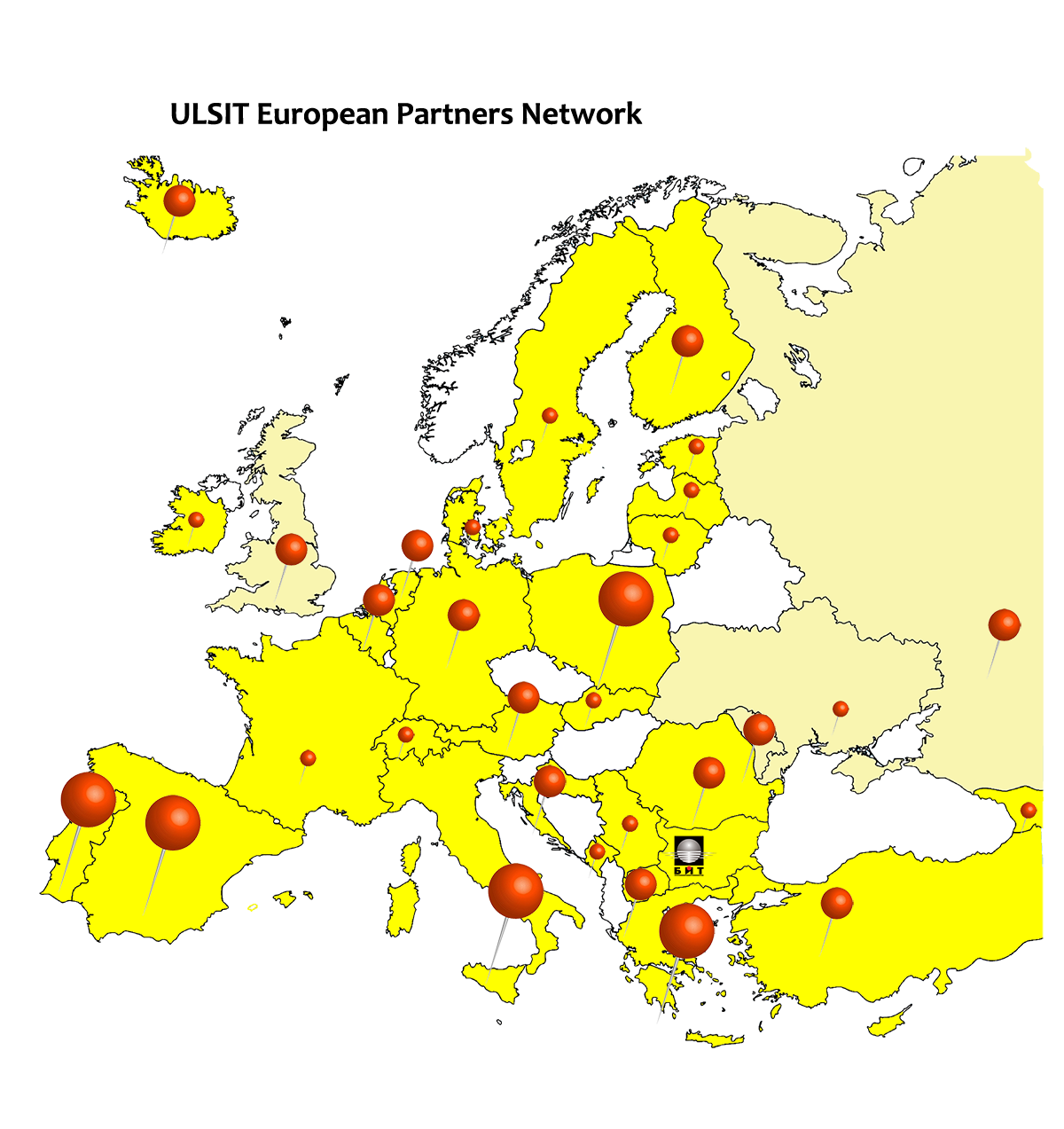The site presents Research and Educational projects internationally and nationally at ULSIT.

The University of Library Studies and Information Technology (ULSIT) is a state university with two faculties: Information Sciences and Library Studies and Cultural Heritage.
ULSIT cooperated with more than 50 foreign universities and training organisations and high technological companies, especially in the field of Internet technologies, cultural and creative industries, education technologies, etc. ULSIT is a member of the National STEM platform, Balkan Universities Network, UNESCO Chairs/UNITWIN Network, Erasmus Networks as Future Education and Training in Computing and School on the Cloud, and others.
The University has gained educational, scientific, technology and innovation capacity, able to get actively involved in the ERA by implementing projects under EU Programmes and other international programmes and initiatives as UNESCO. ULSIT has participated in a lot of national and international scientific, education, and innovation projects. In the last 5 years, ULSIT is involved in more than 30 projects funded by EC, National Science Fund, and Structural Funds. Some significant projects coordinated by ULSIT are ERASMUS+ Project: APInno - Action Project for Innovation (distinguish as a best practice), DigiThink: Design thinking for digital innovation, IoT security nuggets, NAVIGATE: Information Literacy a Game-based Learning Approach for Avoiding Fake Content and with National Scientific Fund KOMEIN: Conceptual Modeling and Simulation of Internet of Things Ecosystems, and Models of Cultural Heritage Socialization in a Smart City (awarded).
In the last 5 year, ULSIT became a partner in three National projects: Centre for Excellence in Informatics and Information and Communication Technologies, National Centre for High Performance and Distributed Calculations and ICT for a Single Digital Market in Science, Education, and Security.
The main areas of research at the university are 4 respectively projects on these topics:
- Information Technologies and Computer Science - most projects are in Cyber Security, AI, and DataScience
- Cultural and historical heritage in a modern information environment, Leadership
- Library Studies and Archive - projects in Open Educational Resources (OERs) and gamification in training.
- National Security - National project in Security and Defence
In the last five years, the projects are more than 60 national and international.
The UNESCO Chair on ICT in Library Studies, Education and Cultural Heritage was established as an interfaculty chair of ULSIT. The Chair contributes to a number of global initiatives, such as: the development of the virtual community for best practices exchange between UNESCO Chairs/UNITWIN, strengthening North-South cooperation in higher education and research. In addition, the Chair works for strengthen some existing networks of partners at regional level (South-East Europe, Danube Macro-Region) and plays the role of a Centre of Excellence and innovation zone in the specified areas. The members of the UNESCO Chair are active members of EDUsummIT - a global community of researchers, policy-makers and educators committed to supporting the effective integration of IT in education.
Its social mission is to prepare highly qualified, socially responsible personally motivated, and adaptive to labour market specialists. ULSIT has the strategic aim for sustainable development as a leading higher school with significant scientific, technological, and innovative potential. It is a boutique university focused on four areas of knowledge: Information Technologies & Computer Science, Cultural Heritage, Library Studies, and National Security.
ULSIT has the ambition to establish a sustainable triangle: academy, research, and business,
ULSIT offers 16 B.A.programmes and 28 Master’s programmes, as well as a number of Doctoral programmes.
The ULSIT’s students carry out summer study practices and probations in companies, including thanks to the cooperation with business and to the project financed under the EU structured funds.
Functional centres and laboratories are established at ULSIT:
- Computer Laboratory “John Atanassov”,
- “Oracle” Laboratory,
- ICT Research Laboratory,
- Research laboratory for Cyber Security,
- Centres for: Innovation & Education;
- Carrier Orientation and Development;
- Continuing Education;
- Information Security and Protection.
Three research and innovation institutes are associated with ULSIT:
- Institute for Research and Doctoral Education,
- Institute for Research in the Field of Organisation, Management and Preservation of Cultural Heritage and
- Institute of Leadership in an Information Environment.
The University is accredited by the National Agency for Evaluation and Accreditation in Computer Science and ICT, Library Studies, Cultural Heritage and History.
Main site: https://www.unibit.bg/
